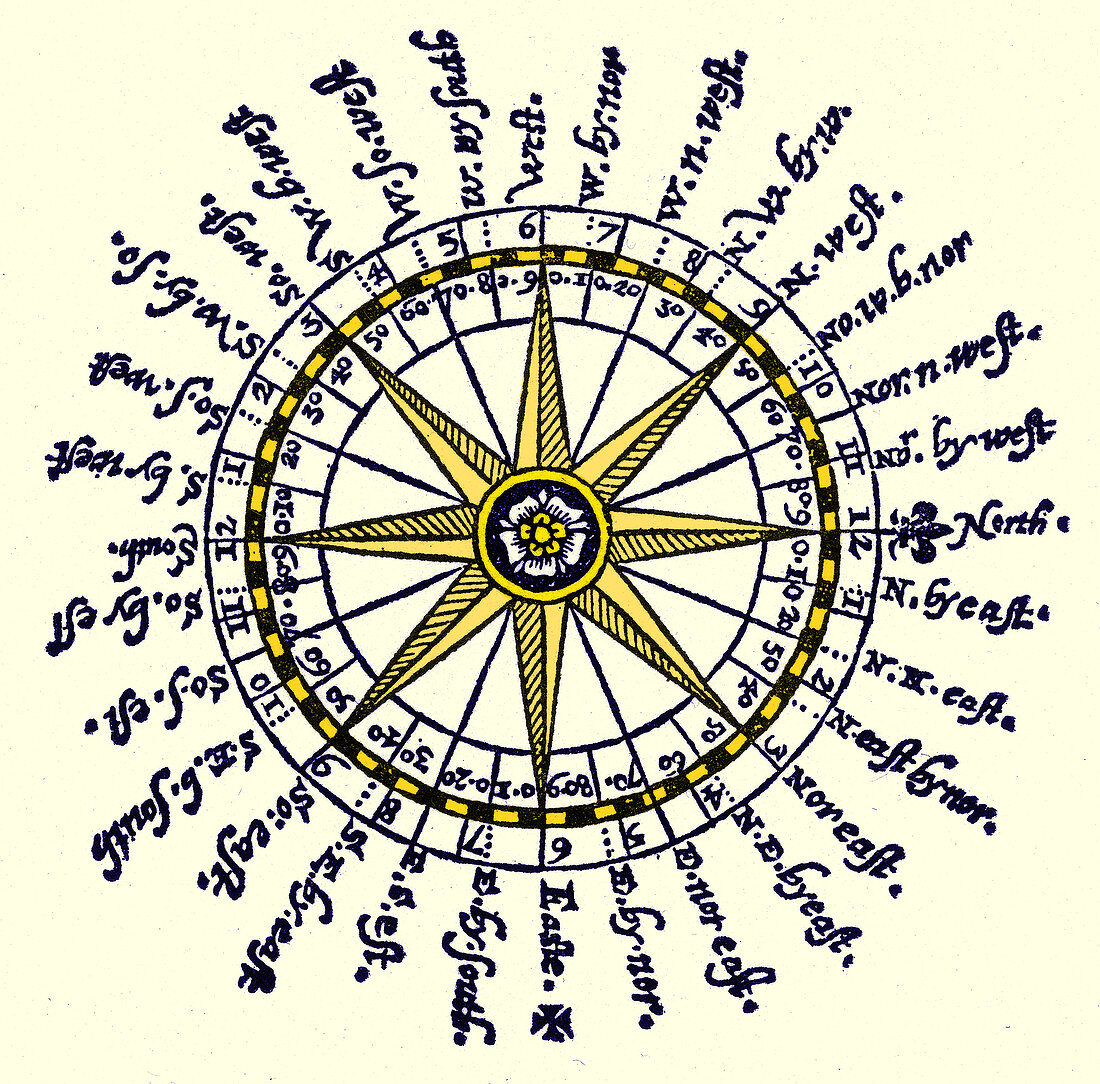Compass Rose, 1607
Bildnummer 12631453

| The compass rose is an old design element found on compasses, maps and even monuments to show cardinal directions and frequently intermediate direction. The rose term arises from the fairly ornate figures used with early compasses. Older sources sometimes use the term compass star, or stella maris (star of the sea), to refer to the compass rose. In the Middle Ages, the names of the winds were commonly known throughout the Mediterranean countries as tramontana (N), greco (NE), levante (E), siroco (SE), ostro (S), libeccio (SW), ponente (W) and maestro (NW). The compass rose has appeared on charts and maps since the 1300's when the portolan charts first made their appearance. It is designed in a circle divided into 32 points or 360 degrees numbered clockwise from true or magnetic north, printed on a chart or the like as a means of determining the course of a vessel or aircraft. Appeared in The Seaman's Secrets byThomas Dawson, 1607. | |
| Lizenzart: | Lizenzpflichtig |
| Credit: | Science Photo Library / Science Source |
| Bildgröße: | 4200 px × 4140 px |
| Modell-Rechte: | nicht erforderlich |
| Eigentums-Rechte: | nicht erforderlich |
| Restrictions: | - |
Preise für dieses Bild ab 15 €
Universitäten & Organisationen
(Informationsmaterial Digital, Informationsmaterial Print, Lehrmaterial Digital etc.)
ab 15 €
Redaktionell
(Bücher, Bücher: Sach- und Fachliteratur, Digitale Medien (redaktionell) etc.)
ab 30 €
Werbung
(Anzeigen, Aussenwerbung, Digitale Medien, Fernsehwerbung, Karten, Werbemittel, Zeitschriften etc.)
ab 55 €
Handelsprodukte
(bedruckte Textilie, Kalender, Postkarte, Grußkarte, Verpackung etc.)
ab 75 €
Pauschalpreise
Rechtepakete für die unbeschränkte Bildnutzung in Print oder Online
ab 495 €
